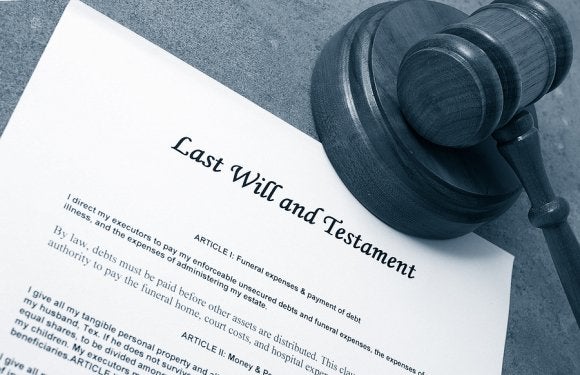-
When You Should Consider Filing for Guardianship
You might consider filing for guardianship with the help of a family law attorney if you have a family member who is no longer capable of behaving in a manner consistent with his or her own interests. For example, a family member may become physically incapacitated through an accident, or as a result of being hospitalized on a long-term basis. An attorney in Spring, TX, may also help you file for guardianship if a loved one has become mentally incapacitated. For example, an adult child may have special mental or emotional needs, or be entitled to receive social security benefits. In such cases, guardianships are critical to getting the child much needed help. Guardianship may also be sought if the individual could be considered incapable of making financial decisions, such as in cases where the proposed ward is a minor.
Since guardianship of a disabled child or an adult requires making crucial, potentially life-changing decisions, it’s important to proceed cautiously. You can receive the legal guidance you need when you consult a lawyer about this aspect of family law. Finally, your family lawyer can also help you seek guardianship of an individual whom you believe is not being adequately represented by a person who holds power of attorney.

-
Steps to Preparing Your Will
If you’re an adult, and if you haven’t yet prepared your will, it’s time to make an appointment with a lawyer who provides estate planning in Conroe, TX. It is worrisome that most Americans pass away intestate, which means they die without a will. When this happens, their estate is subject to inflexible state regulations and guidelines. Additionally, family conflicts over finances and legal guardianship of children may be more likely to occur when a loved one dies intestate. You can protect your family by having a qualified attorney draft your will for you.

Make a List of Your Assets
Before you meet with a lawyer to have your will drafted, you’ll need to make a list of your assets. This is not so much for inclusion into the will, but to give your attorney an idea of what’s involved in the estate. Such a list should include intangible assets such as your bank accounts, along with physical property such as family heirlooms and jewelry. Any assets you have that name a beneficiary, such as a life insurance policies or joint bank accounts, will go to that particular beneficiary. In other words, you cannot use your will to override your beneficiary designations. However, you can change your beneficiary designations, if desired. You can use your will to designate heirs for most all other assets.
Evaluate Prospective Legal Guardians
Choosing a legal guardian for a minor child can be one of the most difficult decisions a parent will face, particularly if there are no obvious candidates available. If you have siblings or other family members, then your will could name one of them to be the legal guardian of your child. However, you should carefully consider whether any particular candidate may be more likely than others to adhere to your preferences for your child’s upbringing. In sum, communication prior to tragedy often limits the scope of that tragedy.
Revisit Your Lawyer Periodically
Estate planning isn’t a “one and done” procedure. As your life circumstances change, so too should your will. Where large estates are involved, it might be wise to make an appointment with your lawyer at least every five years to re-evaluate your situation in light of any recent tax law changes. You should also schedule appointments if you experience a significant change in circumstances, such as the birth of a child, a divorce, a marriage, or the death of a family member if that passing affects your finances.
-
The Basics of Filing for Child Custody
When it’s time to end a relationship with the other parent, determining child custody is a significant concern. Your first step in filing for custody is to contact a child custody lawyer serving Spring, TX. Such family law attorneys will have an in-depth knowledge of child custody proceedings. He or she will ensure that the forms are filled out properly and filed with the appropriate court to prevent unnecessary delays in your case. A child custody attorney will also guide you through the mediation process, which is often mandatory.
To hear more about working with a family law attorney, watch this brief video. This expert explains that family law varies from state to state. He also urges viewers to get in touch with an attorney for personalized legal guidance.
-
Answers to Questions About Divorce in Texas
The disputed divorce is often challenging, particularly because both parties must disclose their personal information, deal with the division of property, and reach an agreement regarding child custody arrangements. A divorce attorney near Spring, TX, can help make this divorce process easier, giving you all the information you need and walking you through the proceedings, step-by-step. Your divorce lawyer can also answer any questions you may have about Texas family law.

Are There Any Residency Requirements?
Yes, Texas family law requires that one or both spouses be a resident for at least six months. Additionally, the party who files the divorce petition must be a resident of the county in which the paperwork is filed for a minimum of 90 days.What Are the Grounds to File for Divorce?
Texas is a no fault divorce state. This means that it is not necessary to prove that either party is responsible for the breakdown of the marriage. When your divorce lawyer prepares the paperwork, he or she can cite “irreconcilable differences.” However, Texas law does allow divorce on fault-based grounds. Let your family attorney know if you may be eligible to file for a fault-based divorce based on adultery, conviction of a felony, cruelty, or abandonment. Other grounds for divorce in Texas include confinement in a mental hospital and separate residency for at least three years.How Long Will the Process Take?
This can vary widely, depending on the complexity of your case, and whether you and the other party can come to a mutual agreement. Once the divorce petition is filed, you must wait at least 60 days for the divorce to be finalized. If there are disputes regarding child custody, support, property division, liability distribution, or other issues, the process can take longer.Is a Divorce Trial Necessary?
In many cases, both parties appear in court and a judge makes the final decisions regarding the matters of dispute. However, it is possible to reach an amicable divorce agreement. You and your spouse can meet in mediation to reach agreements on property, custody, and other matters. Working with a divorce lawyer can help facilitate the mediation process. -
Instances When Probate Litigation May Be Required
After a death, matters pertaining to the decedent’s debts and assets are resolved through the probate process. In many cases, probate is straightforward and is easily settled. However, sometimes probate litigation may be necessary to resolve claims. It’s always a good idea to retain the services of a lawyer when dealing with probate court in Conroe, TX. A probate lawyer can help you in the event that probate litigation is needed, such as if you believe it necessary to authenticate a will. Your lawyer might contest a will if you believe that the document was not drafted properly or the signature may not be valid.
It’s not uncommon for the terms of a decedent’s will to become a source of disagreement among the heirs. You’ll need the services of a skilled probate attorney in the event that you need to dispute the will or if another heir has disputed the will. Another reason why probate litigation may be necessary is if a loved one dies intestate (without a last will and testament). In these cases, an attorney can facilitate the process of determining the rightful heirs.

-
Tips for Discussing Your Will with Your Family
Many people hesitate to discuss estate planning because the subject is inevitably tied to death. Although estate planning may be an uncomfortable topic of discussion, it is quite often a necessary one. You may prefer to wait to discuss these matters with your family until after you have met with a lawyer and drafted your will. If you feel that a discussion about estate planning will turn into a contentious argument among family members, you could even request that your lawyer be present to serve as a neutral third party and answer legal questions.

Determine Your Priorities
Before you meet with the will attorney, write a list of your priorities. Remember that the assets you leave behind should ideally serve to accomplish your goals, rather than to reward deserving loved ones. For example, you might prioritize the care of an ill or disabled family member, the support of a favorite charity, or the education of grandchildren. Determining your priorities will help you when drafting the will and when discussing it with your family members.Decide How Much Information You Wish to Disclose
Ahead of the discussion, determine how much information you’re comfortable sharing with your family. Some people prefer to say very little, informing their heirs only that they’ve drafted a will and that they believe that the will allows for a fair and equal distribution of wealth. Other individuals feel that providing detailed information about which heir will receive which asset will prevent future arguments.Explaining Unequal Distributions
If your will is going to distribute more assets to one heir than to another, you may wish to explain your reasoning. For example, you may have two children, one of whom is a geologist with a lucrative salary and the other is a childcare worker with only a modest wage. You may prefer to leave more than half of your wealth to the latter child. If so, you could explain to your children that this does not reflect favoritism, but rather addresses a real financial need.Consider Disclosing Information After Your Passing
If you feel uncomfortable explaining the terms of your will to your family, you could write separate letters to your heirs or one letter addressed to all of them. Yes, even the videotaped lecture is not uncommon. These procedures allow you to explain your reasoning in a manner which is separate from the will. Keep sealed letters of explanation with the will. -
What to Expect During an Evidentiary Hearing in Your Child Custody Case
When you hire a child custody attorney near Spring, TX, he or she will advise you of what to expect from all stages of the legal process. If you and the other parent cannot come to an agreement regarding child custody , then you may need to attend an evidentiary hearing. During this hearing, your family law attorney will represent you. Nevertheless, you and the other parent will have to testify under oath. While you are under oath, the other parent’s family law attorney will ask you questions, which you are required by law to answer truthfully. Just remember, in a court proceeding, if you do not remember something or do not know the answer to a question, you should say so.
To hear more about the role of the evidentiary hearing in family law, watch this video and consult your child custody lawyer. This expert discusses which other individuals may be questioned under oath at the hearing, such as a minor child. Additionally, certain experts may be called to testify.
-
Probate in Texas: Understanding the Process
Probate is the process of recognizing a death and validating a will for the purpose of administering the decedent’s estate. A decedent’s estate will go through probate regardless of whether an individual had a legal will or died intestate (without a will). After a loved one passes, hiring a probate lawyer can be immensely helpful. A probate attorney in The Woodlands can ensure that the requirements of the Texas Probate Code are met and that probate proceeds as efficiently as possible. The lawyer can also help the family understand what to expect from each step of the probate process.

Waiting Period
The first step your lawyer will take in most probate cases is to file the application and the original of the will at the courthouse. Then, there is a mandatory waiting period, which begins once the application is filed.Probate Hearing
After the waiting period, the court may schedule a probate hearing or your attorney may schedule it. Probate hearings are usually held in the courtroom, however, sometimes they take place in the judge’s office. At the probate hearing, the judge will recognize the death of the decedent, determine that the court has jurisdiction, determine that the executor is qualified, and recognize the validity of the will . The lawyer states certain facts about the decedent to a witness, who is then required to confirm the truth of the facts. Thereafter, the judge may issue an order that admits the will to probate.Estate Administration
After the probate hearing, the executor begins administering the estate. He or she must sign an Oath, which is a legal document verifying the executor’s intent to fulfill all necessary duties required by law and the will. Next, the executor usually orders Letters Testamentary. These “Letters” provide the executor with the authority necessary to administer the estate, such as the power to close bank accounts and sell property. The executor must also publicize information about the estate to potential creditors, provide each beneficiary with a copy of the will, and file various documents with the court. These documents typically include an inventory of probate assets, the decedent’s final income tax return, and a document that confirms the publication of notice to the creditors. Finally, the executor will resolve debts and distribute assets. -
Do You Need to Set Up a Trust?
If you wish to make financial arrangements for your children, grandchildren, or other heirs, it’s a good idea to speak with a lawyer about estate planning , including the possibility of establishing a trust. An attorney in Conroe, TX, can help you explore the various aspects of a trust and how to structure your trust to accomplish your goals. For example, you could use the trust to leave a certain amount of money to your child, which could be distributed in set amounts at certain intervals. This arrangement prevents your child from spending his or her inheritance all at once. Or, you can place conditions on your child’s inheritance. For example, you can have your lawyer set up the trust to distribute small amounts of money over time and to only allow your child to receive the rest after he or she graduates from college.
Another reason why you might ask your attorney to establish a trust is for tax advantages. Life insurance policies provide tax-free benefits to your beneficiaries. However, the death benefit amount may be added back into the estate, which may make it [the estate] subject to federal estate taxes. Establishing an irrevocable life insurance trust protects the full death benefit for your beneficiaries.

-
Top Issues to Discuss with Your Texas Divorce Attorney
Going through a divorce can feel overwhelming at times. However, you may find some peace of mind knowing that your divorce lawyer serving Spring, TX, will handle the legal matters for you, while you focus on moving forward with your life. To help you stay organized, it’s always wise to jot down a list of questions and concerns you have for your divorce lawyer . Some common family law issues are child custody, visitation, support, and property division.

Child Custody
If the marriage produced a child, the child’s best interests should be the top priority for both parties. Even if your divorce is contentious, it’s important to realize that your child doesn’t share your feelings toward your soon-to-be ex-spouse and that your child needs both parents in his or her life. Your divorce lawyer can help you negotiate a child custody arrangement that preserves both parents’ relationships with the child.Visitation
Even when parents share joint custody, the child will generally reside with one parent more than the other, solely for practical purposes. When you meet with your family lawyer, discuss what you expect from the visitation schedule. Consider who might have the child for holidays, school vacations, and weekends. Additionally, consider whether the visitation schedule allows the child sufficient time for school projects, extracurricular activities, and social events.Child Support
Non-custodial parents will be required to pay child support. Generally, in Texas, a non-custodial parent of one child must pay 20 percent of his or her net monthly income. The percentage of net income set aside for child support increases when there are multiple children to support. Consider asking your child custody lawyer how to obtain and enforce a child support order if you are the custodial parent.Property Division
The division of assets and liabilities is another significant issue for divorcing couples. When you meet with your divorce lawyer, bring along a list of your marital assets and debts. Let your lawyer know which assets are most important to you and which you might be willing to let go to the other party. In Texas, community property is not necessarily divided on a 50/50 basis. Fault for the breakdown of the marriage and differences in earning potential of the spouses are factors that a judge might consider when dividing property and liability.
RECENT POSTS
categories
- Uncategorized
- Estate Planning
- Probate
- Family Law
- Drafting a Will
- Divorce Lawyer
- Texas Family Law
- Divorce
- Real Estate
- Probate Court
- Child Custody
- Andrew J. Bolton
- Esq.
- Adoption
- Law Office of Andrew J. Bolton
- Wills
- Executor
- Infographic
- Guardianship
- Trusts
- Contested Divorce
- Child Support
- Attorney
- Living Wills
- Contested Will
- Prenuptial
- Probate Bond
- Heir Apparent
- Legacy Contact
- Living Trusts
- legal guardian
- Legal Disputes
- property rules
- Common Law
- Stocks
- Estate Tax
